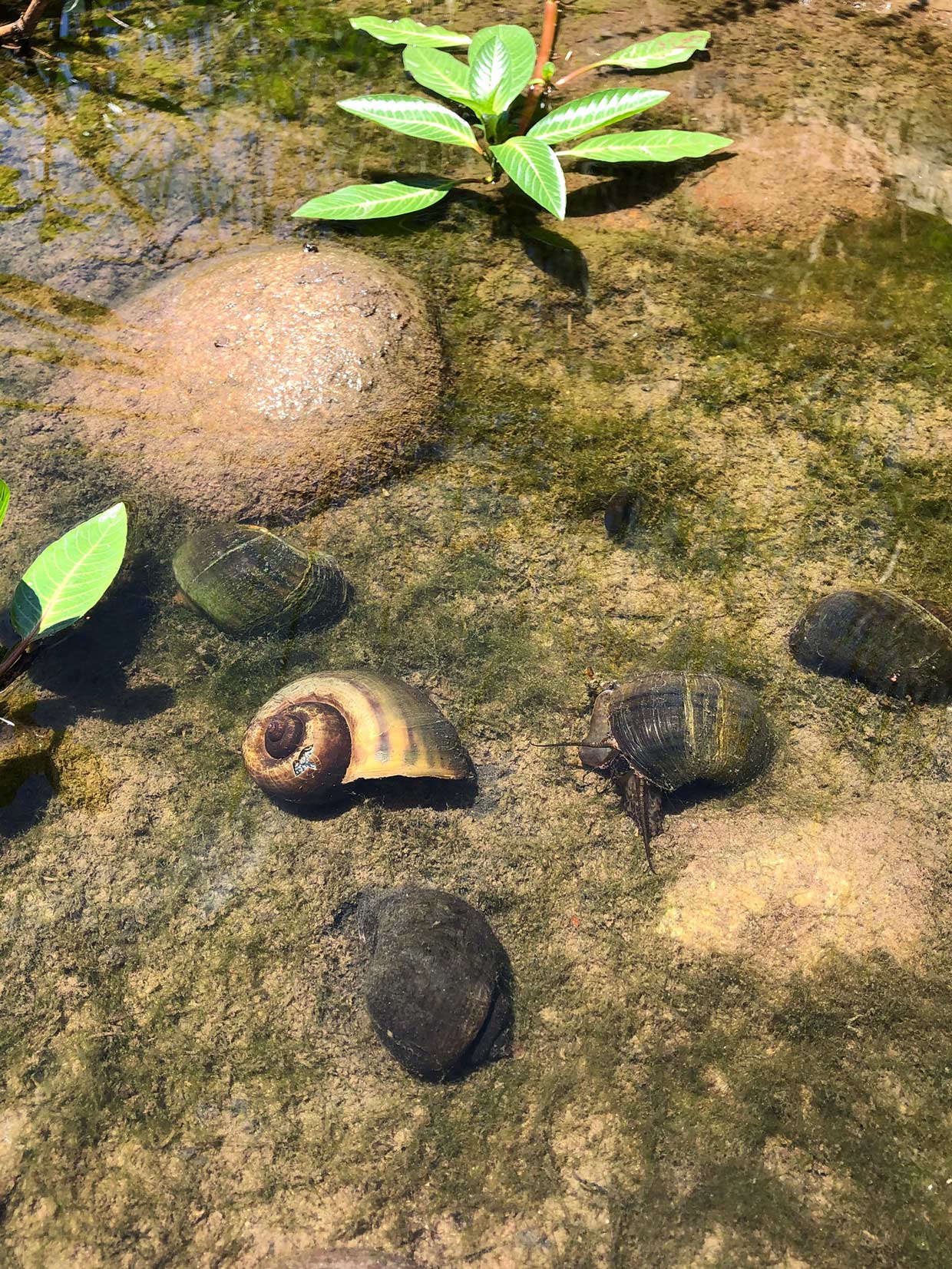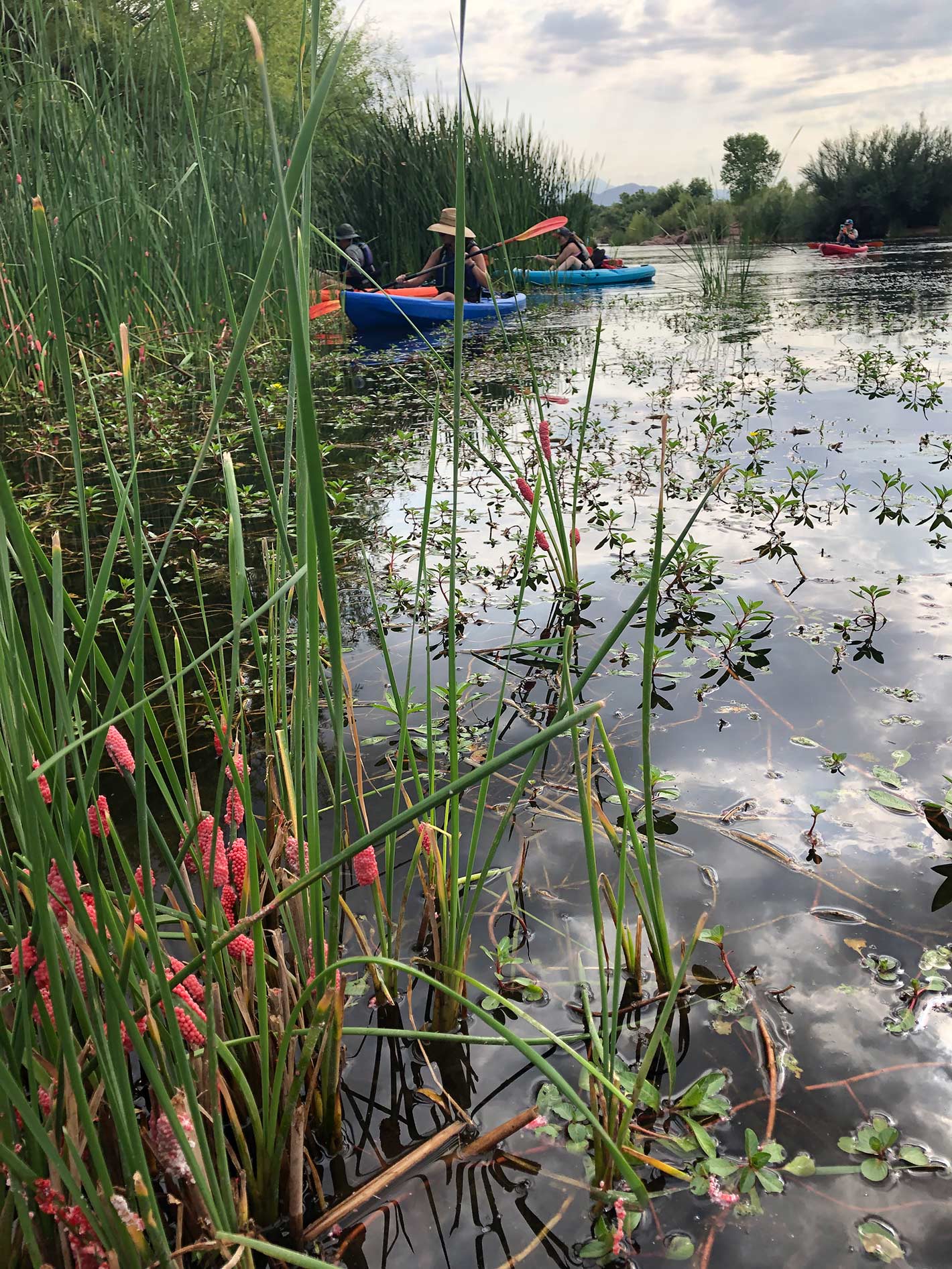 VIEW LARGER Apple Snails in shallow water.
VIEW LARGER Apple Snails in shallow water. The Arizona Game and Fish Department (AZGFD) needs help combating an invasive snail species.
Experts say that apple snails have grown in abundance throughout Arizona waters. The department has asked Arizonans to help eradicate the species and take preventative action by knocking down visible egg masses that resemble clumps of pink bubblegum.
Jeff Sorensen, Invertebrate Wildlife Program Manager for the AZGFD said that the invasive species is originally from South and Central America with some existing populations in Florida as part of its natural range. The snails have been sold in aquatic pet shops as “mystery snails.” “They’re not a mystery to us,” Sorensen said.
 VIEW LARGER Apple Snail egg masses that resemble clumps of pink bubblegum above the waterline of the lower Salt River.
VIEW LARGER Apple Snail egg masses that resemble clumps of pink bubblegum above the waterline of the lower Salt River. The department suspects somebody’s unwanted aquatic pet was released into the wild and traveled to the lower Verde River and Salt River over a decade ago. The AZGFD first became aware of the snails in 2011. At that time, the agency began a response of surveys and documentation with help from staff at Tonto National Forest and later with volunteer non-government organizations such as Sea Life Aquarium, Odyssey Aquarium, and Scottsdale Community College.
“Apple snails are very prolific,” Sorensen said. A single female can produce about 15,000 eggs a year yet most of the native wildlife find them unpalatable or “icky tasting.” Without the predation pressure, their numbers can explode, a consequence that experts have recently recorded.
During the summer months when the snails are more actively reproducing, the department conducts more surveys to record population growth. Right now their catch-per-unit efforts have documented and estimated thousands of the species that lack an upper limit.
Just sheer numbers and competition for resources has posed a threat to the native snail population such as pond snails and ramshorn snails, which are a part of the natural food base that fish, frogs, mud turtles, and water birds depend on. Sorensen said that apple snails can also feed on younger snails and vegetation, which can cause unpredictable impacts on shorelines and aquatic vegetation.
When the department became initially aware of the problem, Sorensen said they made concerted efforts to reach out to the corporate offices of pet stores which received an insufficient response. More recently they’ve had better success with the help of the Aquatic Invasive Species program and law enforcement, who have been talking with individual pet shops about the problem apple snails can cause when they are released into the wild. Many stores no longer carry the species.
I“By releasing them in the wild, you potentially release an animal that can be very adaptable to that environment, one that might potentially have pathogens or parasites that would affect our native species, and then of course, that population of animals might become very successful in getting established,” Sorensen said.
Apple snails can also be carriers of the trematode parasite that causes rat lungworm disease, which can cause meningitis in humans.

By submitting your comments, you hereby give AZPM the right to post your comments and potentially use them in any other form of media operated by this institution.